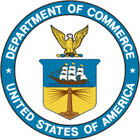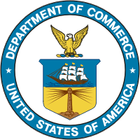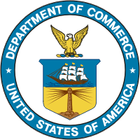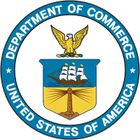Are there political dimensions to open source software and hardware? Americans might be surprised to see such a question, given Washington’s almost complete indifference to the dramatic rise of these approaches to technology development. But that’s not the case in …
Since May of 2019, standards setting organizations (SSOs) and U.S. companies have been struggling with the blowback from the decision by the U.S. Department of Commerce (DoC) to add Huawei and scores of its affiliated companies to the “Entity List” …
The long face-off between the Trump administration and Huawei involving standards development has finally been resolved. Well, yes and no, on which more below.
Initially the issue was whether standards setting organizations (“SSOs”) would be able to permit the Chinese …
The first assertion of liberty in the U.S. Declaration of Independence reads as follows:
We hold these truths to be self-evident, that all men are created equal, that they are endowed by their Creator with certain unalienable Rights, that among …
 Regular readers will know that the addition of Huawei and scores of its subsidiaries to the U.S. Bureau of Industry and Security Entity List last May has had a serious impact on standards setting organizations (SSOs). Specifically, the related …
Regular readers will know that the addition of Huawei and scores of its subsidiaries to the U.S. Bureau of Industry and Security Entity List last May has had a serious impact on standards setting organizations (SSOs). Specifically, the related …
 A few weeks ago it seemed likely that the US Department of Commerce, Bureau of Industry and Security (“BIS”), would issue new guidance that might free standards setting organizations (SSOs) from the difficult position they have found themselves in for …
A few weeks ago it seemed likely that the US Department of Commerce, Bureau of Industry and Security (“BIS”), would issue new guidance that might free standards setting organizations (SSOs) from the difficult position they have found themselves in for …
There’s been a lot of activity in diverse parts of the standards and open source software development world of late. Here’s a selection of items you may have missed that I think might be of greatest interest.
In its simplest form, FOSS development requires almost no traditional economic, physical or management support. All that is needed is a place to host code in a manner that allows multiple developers to collaborate on its further development. As FOSS has become more commercially valuable and widely incorporated into vendor and customer strategic plans, however, additional layers of services and structures have evolved to allow FOSS development to become more efficient and robust and the user experience even more productive. These include training, a growing certification testing network, a variety of tools to assist in legal compliance matters, and a network of hosting entities providing a wide range of supporting services and frameworks.

It would not be an exaggeration to say that the magic of open source software (OSS) is based as much on legal innovation as it is on collaboration. Indeed, the essential innovation that launched free and open source software was …
Everybody uses open source software (OSS) today. Millions of people contribute to the code itself. Indeed, a substantial percentage of the users and creators of OSS today are young enough to have never known a world that didn't rely on OSS. In other words, it's very easy to take this remarkable product of open collaboration for granted.



 Regular readers will know that the addition of Huawei and scores of its subsidiaries to the U.S. Bureau of Industry and Security Entity List last May has had a
Regular readers will know that the addition of Huawei and scores of its subsidiaries to the U.S. Bureau of Industry and Security Entity List last May has had a  A few weeks ago it seemed likely that the US Department of Commerce, Bureau of Industry and Security (“BIS”), would issue new guidance that might free standards setting organizations (SSOs) from the difficult position they have found themselves in for …
A few weeks ago it seemed likely that the US Department of Commerce, Bureau of Industry and Security (“BIS”), would issue new guidance that might free standards setting organizations (SSOs) from the difficult position they have found themselves in for …